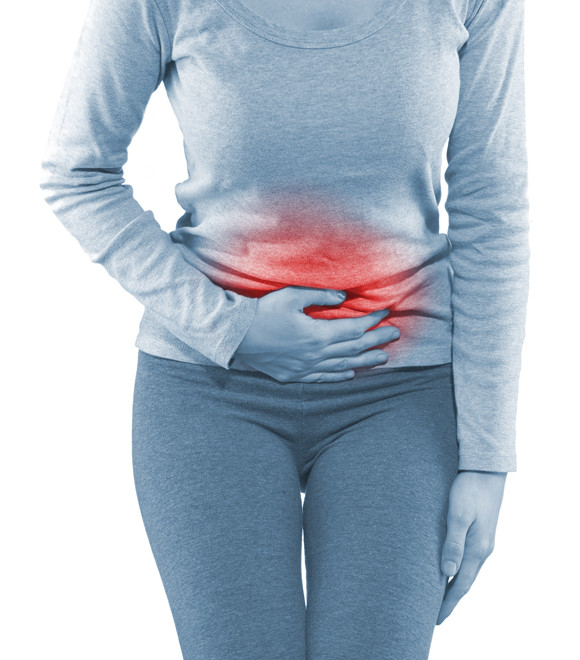

Why should you receive treatment
for Crohn's disease in AMC?
Crohn’s Disease is a kind of chronic inflammatory bowel diseases and its etiology is still unknown. Crohn’s disease is an intractable disease with main symptoms of abdominal pain, diarrhea, weight loss, and bloody stool, which requires an accurate diagnosis and subsequent medical and surgical treatment.
AMC has established the first clinic for Crohn's disease and ulcerative colitis in Korea in 1993. AMC has taken the lead in patient management, research, and education for inflammatory bowel diseases. Eventually, it opened the Inflammatory Bowel Disease Center on May 2, 2012, which was also the first in Korea.
Currently, Inflammatory Bowel Disease Center of Asan Medical Center has around 6,000 registered patients either with Crohn’s disease or ulcerative colitis. It is the largest number recorded in a single medical institution around Korea.
The Inflammatory Bowel Disease Center of Asan Medical Center provides comprehensive and holistic care for patients with Crohn’s disease. The Center offers individualized medical therapy and optimal surgery for each patient by multidisciplinary team care approach. Especially, over 50% of intestinal surgery for patients with Crohn’s disease is being performed by a laparoscopic approach ensuring better cosmetics and rapid recover. Perianal fistula, which is a tract between bowel and perianal skin area due to chronic inflammation, is one of the most common complications of Crohn’s disease. It often requires an appropriate combination of medical and surgical therapy. Therefore, AMC is applying various treatment options to treat Crohn’s disease-related complications such as stem cell therapy for intractable perianal fistulae.
Treatment options

Medical therapy and surgery
Crohn’s disease is a disorder with chronic inflammation leading to serious complications such as intestinal strictures or perforations. Long-term drug therapy with 5-aminosalicylic acids, antibiotics, immunomodulators, or biologic agents is the mainstay of therapy, which controls inflammatory response. In cases of medical refractoriness, intestinal complications, or perianal fistulae, an appropriate surgical management is required.
Management of perianal fistulae
Simple perianal fistula can be managed by medical therapy and/or simple fistulotomy. In cases of complex perianal fistulae, multidisciplinary approach by medical and surgical team is needed to offer optimal therapy for each patient.

Stem cell therapy for perianal fistulae
The Department of Colon and Rectal Surgery in AMC Inflammatory Bowel Disease Center provides adipose-derived stem cell therapy as well as conventional surgical treatment for perianal fistulae. Stem cell therapy involves injecting stem cells made from fat tissue of the patient’s abdomen and/or thigh. The stem cells are injected into the fistula tract to induce the complete closure of fistula tract.
-
Treatment procedures (4-8 weeks)
Extracting fat from the patient, Isolating adipose-derived stem cells → Expanding and packing stem cells → Injecting stem cells into fistulae
-
Therapeutic effects
Tissue regeneration: Regenerating the damaged tissues of the fistula tract and opening by implanting pluripotent stem cells. The procedure does not cause damage of the anal sphincters, unlike surgery.
Stem Cell Therapy
The Department of Colon and Rectal Surgery provides surgical treatment as well as autologous adipose-derived stem cell therapy. This therapy involves injecting an agent made from the fat of the patient’s abdomen and thighs. The agent is injected into the anal fistula to help the fistula to close completely.
-
Treatment options (4-8 weeks)
Extracting fat from the patient, Isolating adipose-derived stem cells → Expanding and packing stem cells → Injecting stem cells into fistulae
-
Therapeutic Effect
- Tissue regeneration : Regenerating the damaged tissues of the fistula tract and opening by implanting pluripotent stem cells. The procedure does not cause damage of the anal sphincters, unlike surgery.
- Anti-inflammatory effect : Regulating inappropriately activated immune system by blocking various signaling pathways leading to inflammation.
- Repairing injury : Facilitating angiogenesis through growth factors and cytokines secreted from stem cells to help tissue proliferation and restoration
Treatment performance of AMC IBD team: Surgery
- Starting open surgery for patients with Crohn’s disease in 1991
- Performing more than 100 surgeries for Crohn’s disease per year since 2010
- Performing laparoscopic surgeries on more than 50% of patients with Crohn’s disease since 2015
- Have performed 1,000 surgeries for patients with Crohn’s disease, for the first time in Korea by 2016
- AMC IBD team surgeons has performed more than 40% of total surgeries for Crohn’s disease conducted in Korea.
- Five-year and six-year reoperation rates after the first surgery for Crohn’s disease were 11.6% and 14.7%, respectively. According to a multicenter study from Korea, six-year reoperation rates were 24% on average.
Medical staff
AMC’s Inflammatory Bowel Disease Center runs the ulcerative colitis and Crohn’s Disease clinic, the intestinal Behçet's disease clinic, the inflammatory bowel disease surgery clinic, and the clinical research clinic as well as the one-stop treatment system. It provides professional consultations on medical therapy, surgical therapy, and holistic care for patients with inflammatory bowel diseases.
